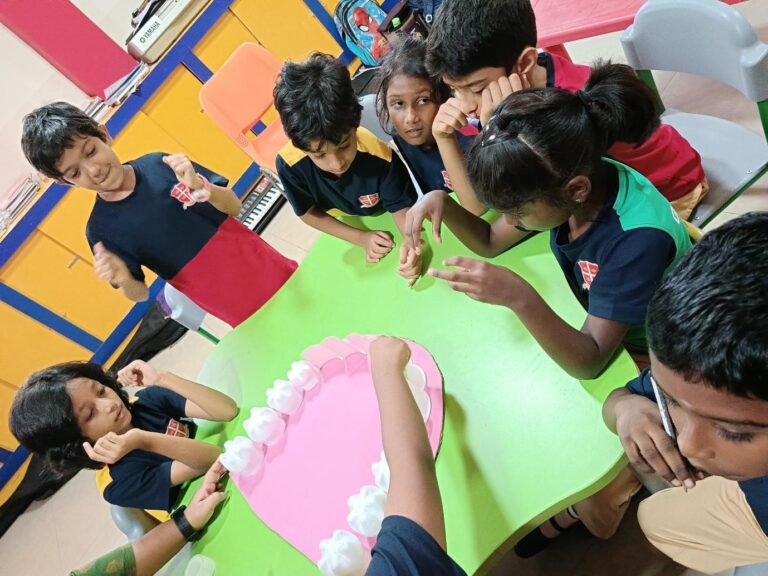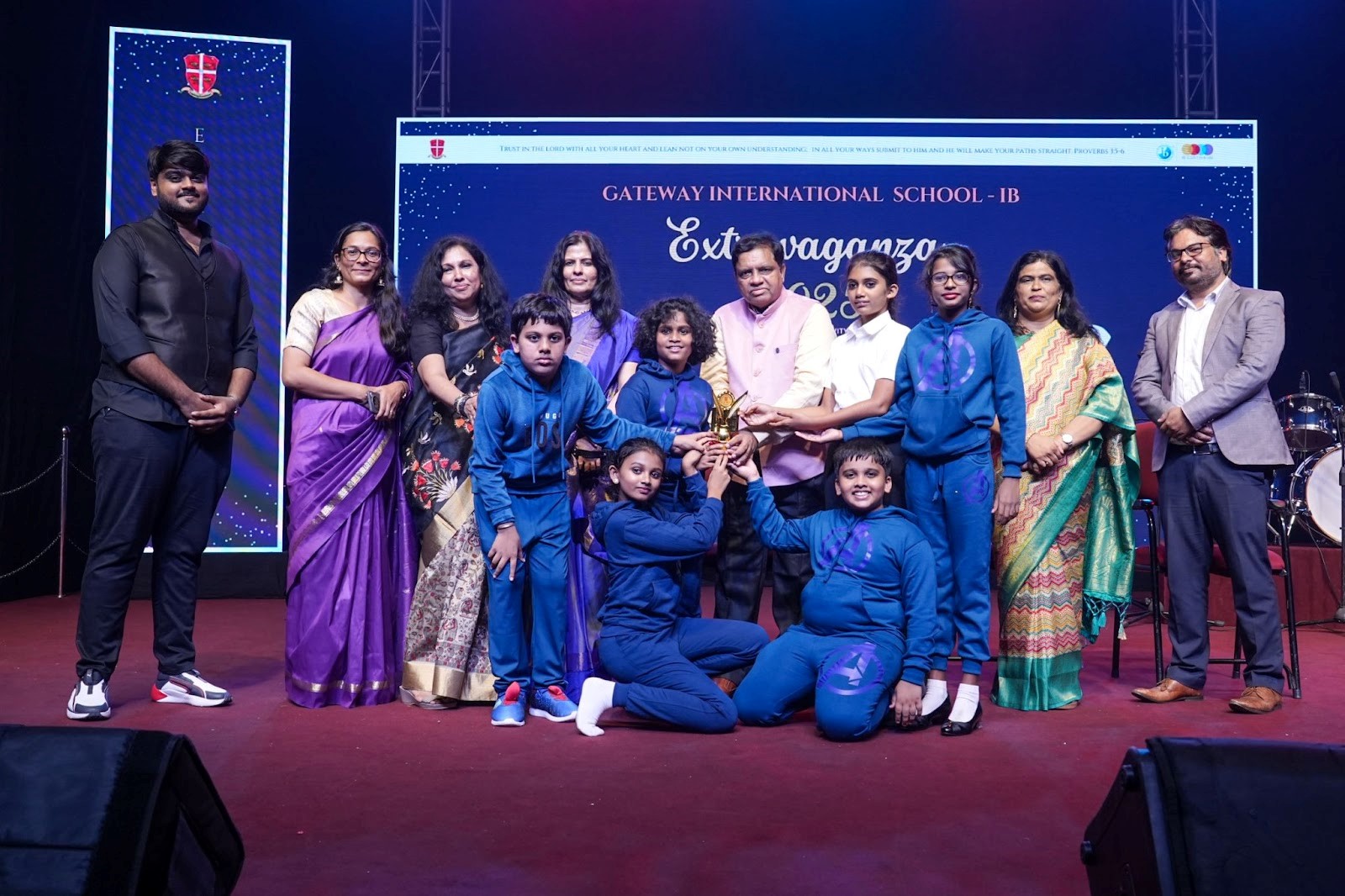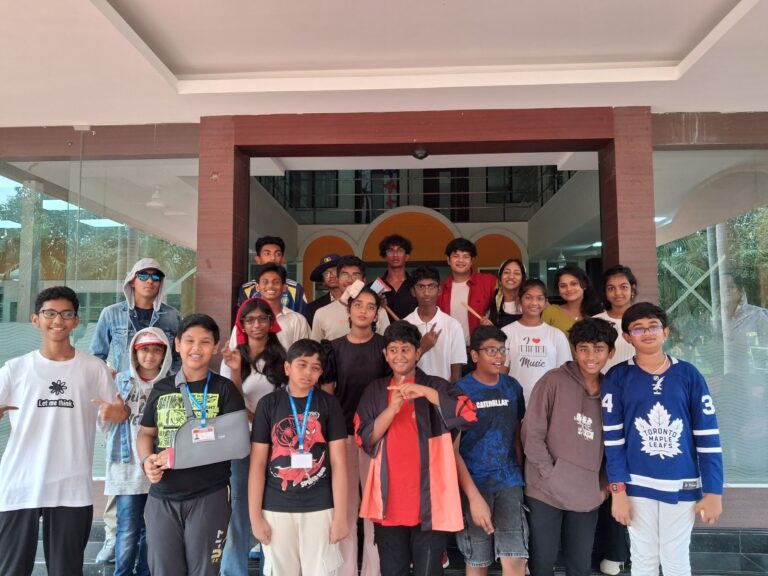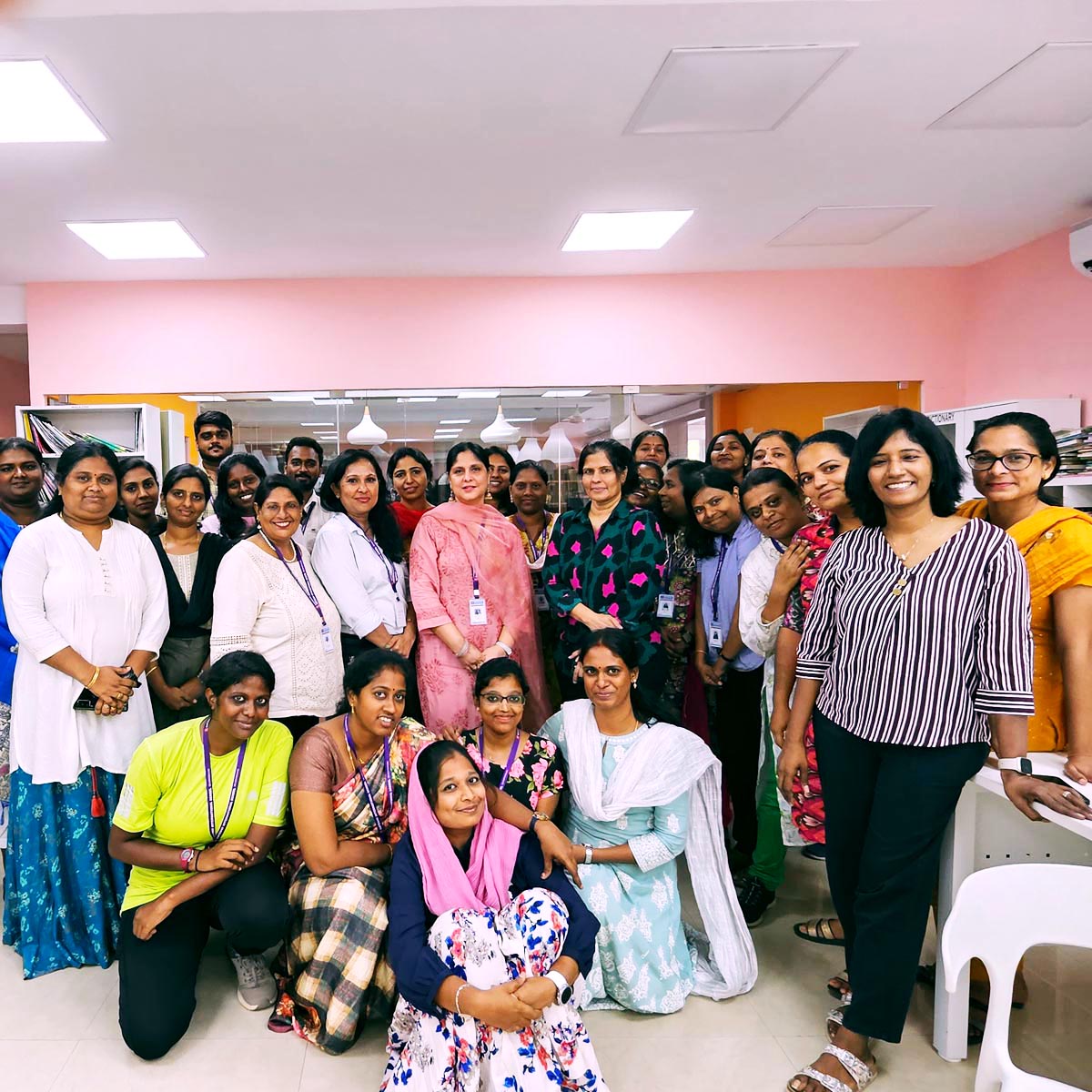PYP

With a focus on holistic development, GIS nurtures children’s potential, curiosity, and innate talents to shape confident, independent learners and well-rounded individuals.
The Enhanced Primary Years Programme (PYP) at GIS.
At Gateway International School (GIS), the Enhanced PYP emphasizes learner agency, empowering students to take ownership of their learning journey. In our classrooms, the teacher-student relationship is built on partnership and trust, where students are encouraged to set personal goals, monitor their progress, and actively engage in the learning process.
Through collaborative inquiry and integrated learning, students develop essential skills and embody the attributes of the IB Learner Profile. This equips them to embrace challenges with confidence and contribute meaningfully to creating a more peaceful and sustainable world.
GIS nurtures a vibrant and inclusive PYP learning community that extends beyond the classroom, embracing families, educators, and the broader IB network. By fostering respect for cultural diversity and promoting open-mindedness, we equip our students to become compassionate global citizens who lead with empathy, inspire positive change, and value inclusivity in all aspects of life.
EYP & PYP
Gateway International School (GIS) has been an authorized Primary Years Programme (PYP) school since 2017, offering a curriculum designed for students aged 3 to 12. With a focus on holistic development, GIS nurtures children’s potential, curiosity, and innate talents to shape confident, independent learners and well-rounded individuals.
The Enhanced PYP curriculum emphasizes learner agency, where students take ownership of their learning. At GIS, the teacher-student relationship is a partnership, encouraging students to set goals, monitor progress, and engage actively. Through collaborative inquiry and integrative approaches, our students develop the IB Learner Profile attributes, enabling them to adapt to challenges and contribute to creating a better, peaceful world.
GIS fosters a vibrant PYP learning community that extends beyond classrooms to families, educators, and the broader IB network. By cultivating respect for diverse cultures and nurturing open-mindedness, GIS prepares global citizens who lead by example, valuing inclusivity and fostering meaningful change in their communities and beyond.

LEARNING ENGLISH
At Gateway International School, English is the language of instruction across all programmes. As the academic language of the school, English is integrated into every aspect of learning, communication, and expression.
Students are immersed in a rich English-speaking environment that nurtures their listening, speaking, reading, and writing skills through inquiry-based learning and meaningful classroom interactions. While we welcome learners from diverse linguistic backgrounds, all students are expected to engage with the curriculum in English from the outset.
Our learning environment is designed to support and challenge students in developing fluency, confidence, and academic proficiency in English, empowering them to succeed both within and beyond the classroom.
Mother tongue support
At GIS, we recognize the importance of maintaining proficiency in students' mother tongue alongside learning English. This dual-language approach enriches their academic, social, and emotional development. Students are encouraged to celebrate their cultural heritage through active participation in assemblies and events, fostering pride and connection to their roots.
Additional languages
At Gateway International School [IB], we embrace a holistic approach to language learning, integrating listening, speaking, reading, and writing as interconnected skills. Grammar is taught contextually, enhancing communication in both written and spoken forms. Alongside Tamil, Hindi, and French, we offer Spanish from PYP 4 onwards, fostering students' enthusiasm for acquiring new language skills and building proficiency in communication.
Special Education Needs (SEN)
Gateway strongly encourages students’ participation across the curriculum. Parents of
those students who have received counselling, support, therapy or have been diagnosed with special educational needs should include all relevant diagnostic reports and evaluation documentation for confidential review.
Exhibition
The PYP exhibition at GIS is a student-driven, collaborative process where learners explore and present issues of personal significance. Guided by mentors, they take ownership of their learning, demonstrate understanding, and showcase their capacity for meaningful action.
Founder's Voice
English as a Second Language (ESL)
At Gateway International School, we embrace students from diverse cultural and linguistic backgrounds. Our teachers support ESL students in integrating into an English-speaking environment, ensuring they feel comfortable and confident. By attending core and enrichment classes with peers and receiving differentiated English language lessons, students build the skills, knowledge, and confidence needed to thrive in our curriculum.

MYP
Gateway International School (GIS) is an authorized Middle Years Programme (MYP) school, authorized in December, 2016. The International Baccalaureate (IB) Middle Years Programme (MYP) aims to meet the educational needs of students between the ages of 11 and 16.
The MYP is designed for students aged 11 to 16. It provides a framework of learning that encourages students to become creative, critical and reflective thinkers. The MYP emphasizes intellectual challenge, encouraging students to make connections between their studies in traditional subjects and the real world. It fosters the development of skills for communication, intercultural understanding and global engagement, qualities that are essential for life in the 21st century.
The young minds at this crucial stage require an engaging and holistic curriculum that is
relevant to the important real world issues that concern them – from the personal to global. They are encouraged to become experts at learning and their ability to locate, process, critically evaluate and communicate information is heightened. The MYP programme focuses on the ability of the students to draw the connection between the traditional subjects and the real world. The programme also develops the skills that are needed essentially, some of them being communications skill, intercultural understanding and global engagement. The MYP aims to help students develop their personal understanding, their emerging sense of self and responsibility in their community.
The IB MYP also relies on connecting classroom pedagogical practices and content to the world outside through the Global Contexts and the Learner Profile. The IB MYP prepares students for the IB Diploma Programme, which was established to provide students with a balanced education, facilitate geographic and cultural mobility and to promote international understanding.
MYP’s Unique Approach: Shaping Global Citizens
The IB Middle Years Programme (MYP) provides a distinctive and forward-thinking approach to education, tailored to meet the needs of today’s globally connected society. At the heart of the MYP are six global contexts that help students explore real-world issues through meaningful and relevant learning experiences.
These global contexts encourage students to make connections between their studies and the world around them, fostering a deeper understanding of themselves and their roles in local and global communities. By using a common language across subjects, teachers design units that are interdisciplinary, inquiry-driven, and focused on developing critical thinking, collaboration, and international-mindedness.
The MYP empowers students to become active, compassionate, and lifelong learners—skills essential for success in the 21st century.
Approaches to learning
Approaches to Learning (ATL) are at the core of the MYP and represent essential skills that students develop and apply throughout the programme—and beyond. These skills help students become independent, self-directed learners who can think critically, collaborate effectively, and communicate with confidence.
ATL skills are grouped into five key categories:
- Thinking skills
- Communication skills
- Social skills
- Self-management skills
- Research skills
Through consistent practice and reflection, students not only enhance their academic performance but also build lifelong skills needed for success in a rapidly changing world.
Community and service
Service as Action is a key aspect of the IB Middle Years Programme (MYP), empowering students to apply what they learn in the classroom to real-life situations and make meaningful contributions to their communities. It nurtures empathy, promotes student agency, and inspires socially responsible action.
As part of this commitment, all MYP students engage in service activities throughout the programme, which culminate in the Community Project in MYP Year 3 or 4 (Grade 8 or 9).
The Community Project:
The MYP Community Project is a student-led initiative that encourages learners to explore a community need, plan a course of action, and reflect on their experience and impact. It helps students develop ATL (Approaches to Learning) skills, such as collaboration, research, and self-management, while fostering the IB Learner Profile attributes—especially those of caring, principled, and reflective nature.
Through the Community Project, students learn that they can be the change-makers in their world, developing confidence, compassion, and a commitment to making a positive impact.
Global Perspective and Real-World Connections
Throughout the MYP, students are exposed to various formal and informal assessments that inform their learning. The programme incorporates global perspectives, promoting an understanding of different cultures and the shared human experience. This approach helps students gain an awareness of the world and prepares them for success in further studies and life beyond school.
Developing Independence and Service
During the MYP, students develop a strong understanding of their approaches to learning, which helps foster their independence and autonomy. They also create a deep appreciation for service and action, reinforcing the IB philosophy of becoming an internationally minded member of the global community. The student-centred approach in the MYP connects traditional academic disciplines while highlighting their real-world relevance.
For further information on the MYP at Gateway International School, please refer to the detailed curriculum brochure, which is available for download.
Core Disciplines in the MYP
The MYP at Gateway International School includes eight core disciplines:
Language and Literature
Individuals and Societies (Social Studies)
Arts (Music and Visual Arts)
Design
Physical and Health Education
Sciences
Mathematics
Language Acquisition (Foreign Languages)
In years 4 and 5, students have the option to take courses from six of the eight subject groups.
The MYP Personal Project: A Journey of Independent Learning
The Personal Project is a significant milestone in the final year of the International Baccalaureate (IB) Middle Years Programme (MYP). It is a student-driven, independent project that empowers learners to explore a topic of personal interest, apply their skills, and showcase their growth.
This year-long project allows students to:
Investigate an area they are passionate about
Set goals and plan their process.
Apply Approaches to Learning (ATL) skills such as research, time management, and reflection
Create a product or outcome that demonstrates their learning.
Present their project to the school community.
The Personal Project encourages students to take ownership of their learning and celebrate their achievements. It promotes international-mindedness, creativity, and critical thinking—preparing them for success in the IB Diploma Programme and beyond.
Students are supported by a mentor and guided by the IB Learner Profile attributes as they explore who they are, what they value, and how they can make a meaningful impact.
Assessment in the MYP
At GIS, MYP assessment adheres to globally consistent, criterion-related standards set by the International Baccalaureate (IB). Rather than comparing students to one another, assessments focus on each student’s achievement of clearly defined objectives for each subject.
Teachers design a variety of assessment tasks—including problem-solving activities, debates, experiments, presentations, and written reflections—to evaluate conceptual understanding, skill development, and learner growth in meaningful and authentic ways.
This rigorous and holistic approach fosters critical thinking, communication, and research skills while preparing students for academic success and future examinations. Our assessment practices reflect the IB’s commitment to excellence, personalized learning, and lifelong learning.
MYP eAssessment (for MYP Year 5)
In the final year of the MYP, students have the opportunity to participate in IB eAssessments, a globally recognised external evaluation tool. These assessments include on-screen examinations in core subjects such as Language and Literature, Language Acquisition, Sciences, Mathematics, Individuals and Societies, and Interdisciplinary Learning, as well as coursework components, including the Personal Project and Design/Arts portfolios.
The eAssessments offer an authentic and interactive platform for students to demonstrate their knowledge, skills, and understanding in real-world contexts. Results from these assessments can lead to the IB MYP Certificate, enhancing a student’s academic profile and supporting transitions to the IB Diploma Programme and other senior-level curricula.

DP
The IB Diploma Programme (DP) is a rigorous and balanced educational framework for students aged 16 to 19, equipping them for success at university and beyond. Recognized
by leading universities worldwide, it addresses students’ intellectual, social, emotional, and physical well-being, fostering holistic growth and lifelong learning.
Gateway International School (GIS), an authorized DP school since 2017, emphasizes structured inquiry as a cornerstone of learning. The Diploma Programme helps students
gain breadth and depth of knowledge across six subject groups, develop a positive attitude toward lifelong learning by honing their essential life skills, and cultivate socially responsible actions, and study multiple languages to deepen cultural understanding, including their own. At GIS, we nurture students’ potential, fostering curiosity and respect for cultural diversity, shaping them into empathetic, caring, and globally-minded individuals committed to making a positive difference.
The Diploma Programme core
The extended essay asks students to engage in independent research through an in-depth study of a question relating to one of the DP subjects they are studying. The world studies extended essay option allows students to focus on a topic of global significance which they examine through the lens of at least two DP subjects.
Theory of knowledge (TOK)
Theory of knowledge (TOK) develops a coherent approach to learning that unifies the academic disciplines. In this course on critical thinking, students inquire into the nature of knowing and deepen their understanding of knowledge as a human construction.
Creativity, Activity, Service (CAS)
Creativity, Activity, Service (CAS) emphasizes helping students to develop their own identities, in accordance with the ethical principles embodied in the IB mission statement and the IB learner profile. CAS complements a challenging academic programme in a holistic way, providing opportunities for self-determination, collaboration, accomplishment and enjoyment. It involves students in a range of activities alongside their academic studies throughout the DP. The three strands of CAS are creativity (exploring and extending ideas leading to an original or interpretive product or performance), activity (physical exertion contributing to a healthy lifestyle) and service (collaborative and reciprocal engagement with the community in response to an authentic need).
Group 1
Studies in language & literature
- English A: language & literature SL/HL
- English A: literature SL/HL
Group 2
Language acquisition
- French ab initio
- French B SL/HL
- Spanish ab initio
- Spanish B SL/HL
- Hindi B SL/HL
- Tamil B SL/HL
Group 3
Individuals & societies
- Business management SL/ HL
- Economics SL/HL
- History SL/HL
- Psychology SL/HL
- Digital societies SL/HL
- Global politics SL/HL
- Environmental Systems and Societies SL/HL
Group 4
Sciences
- Biology SL/HL
- Chemistry SL/HL
- Physics SL/HL
- Computer Science SL/HL
- Design technology SL/HL
- Environmental systems and societies SL/HL
- Sports, exercise and health science SL/HL
Group 5
Mathematics
- Math analysis and approaches SL/HL (for engineering and science streams)
- Math applications and interpretations SL/HL (for business/commerce streams)
Group 6
The arts
- Visual arts SL/HL
